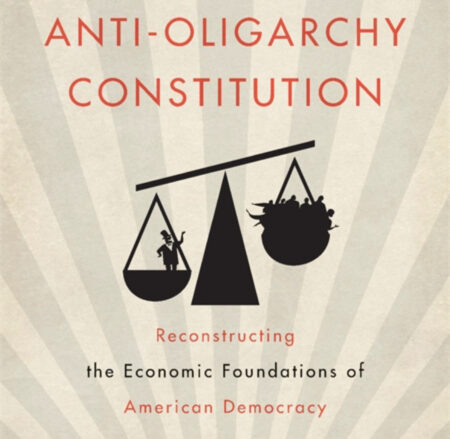Aziz Rana aims to free us from Constitution worship. An abiding faith in “redemptive” constitutionalism, his new book argues, has long held back liberals, progressives, and even the Left from seriously promoting major change in our structures of government. Yet key left figures and movements have always made canny use of redemptive constitutional narratives and arguments. Rejecting that tradition leaves far too much on the table.
Institutional leaders must affirm that advocacy for Palestinian rights, as well as concern for and celebration of Palestinian lives, is squarely within the sphere of legitimate discourse.
In the introduction to a symposium on their new book, The Anti-Oligarchy Constitution, Joseph Fishkin and William E. Forbath make the case for reviving interest among progressives in constitutional political economy.
In my last post, I began a discussion of the Weimar Constitution as one of the first constitutions containing provisions for social and economic rights (SER), and perhaps the very first one, in which socialists had an important hand drafting and expounding. The literature on constitutional SER misses a great deal when it casts the Weimar Constitution as a weak, infant version of later SER constitutions, which grew stronger over time.
Socialism is back. But what is socialism? We have forgotten a lot about what it meant in its salad days, a century ago. And what we have forgotten may include what might be compelling today.
“Political economy” has an antique ring. More than a century ago, the field of “political economy” began to give way to what was called “economics.” By the mid-twentieth century, political economy was forgotten; economics ruled the roost. But what is old is new again. Political economy is coming back. Economics sidelines the distribution of wealth…





